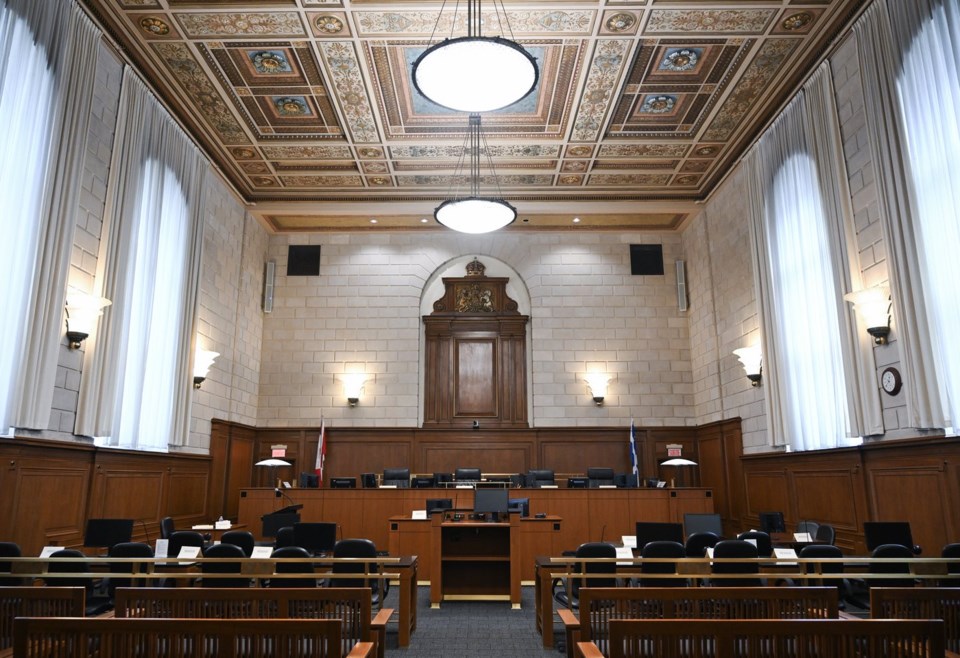MONTREAL — Quebec's Public Security Department announced late Friday afternoon that most random traffic stops by police are suspended, days after the Court of Appeal affirmed that arbitrary road checks lead to racial profiling.
The new policy has been in place since April 1, the department said, the day Quebec's Court of Appeal refused the government's request to allow arbitrary police traffic stops to continue until the province's legal challenge is heard before the Supreme Court.
In a decision rendered Monday, the Court of Appeal said the negative impacts of random stops on the Black community outweigh the benefits to the public of letting them continue. Instead, Court of Appeal Justice Stéphane Sansfaçon allowed only certain types of traffic stops to go ahead while the case makes its way through the Supreme Court legal process.
Permitting random police traffic stops, Sansfaçon wrote, "are likely to have negative impacts on Black people that are much more significant than the benefits to the general public that come from applying the measure during this period."
Ahead of a potential hearing before the Supreme Court, only certain random stops may continue, the judge said. They include impaired driving checks during which police officers want a breathalyzer sample — an action under the Criminal Code that can only be taken by an officer in possession of a detection device. Also authorized are stops by provincial roadside inspectors seeking to pull aside trucks or taxis, which fall under their jurisdiction.
The Public Security Department said on Friday that the suspension does not prevent police "from carrying out a traffic stop when they have reasonable grounds to believe that an offence is being committed."
Last October, the Court of Appeal upheld a landmark 2022 lower court decision that declared inoperative an article of the province's Highway Safety Code that allowed police to randomly stop drivers without a reasonable suspicion that an offence has been committed.
The 2022 decision said random police stops lead to racial profiling and violate constitutional rights, including freedom from arbitrary detention and equality rights. The ruling, however, involved random traffic stops and not structured police operations such as roadside checkpoints aimed at stopping drunk drivers.
The Court of Appeal gave the government six months to modify the Highway Safety Code so that it complies with the ruling.
Superior Court Justice Michel Yergeau ruled in October 2022 that “racial profiling does exist. It is not a laboratory-constructed abstraction … It is a reality that weighs heavily on Black communities. It manifests itself in particular with Black drivers of motor vehicles."
Yergeau said evidence had shown over time that arbitrary power granted to the police to make roadside stops without cause became "for some of them, a vector, even a safe conduit for racial profiling against the Black community."
The legal action was brought by Joseph-Christopher Luamba, a 22-year-old Black Montrealer who said he had been stopped by Quebec police nearly a dozen times without reason, and that none of the stops resulted in a ticket.
In December, the Quebec government said it was taking the matter to the Supreme Court, and last month asked the Court of Appeal to extend its six-month deadline to modify the highway code until the case is heard at the country's highest court.
Earlier Friday, the Canadian Civil Liberties Association called on Quebec police forces to detail their plans to ensure compliance with the ruling. "We need full transparency and accountability from law enforcement to ensure these unconstitutional practices come to an end," said Abby Deshman, interim executive director of the association.
Requests this week by The Canadian Press to obtain police compliance plans from the province's public security and justice departments were not returned.
This report by The Canadian Press was first published April 4, 2025.
Sidhartha Banerjee, The Canadian Press



